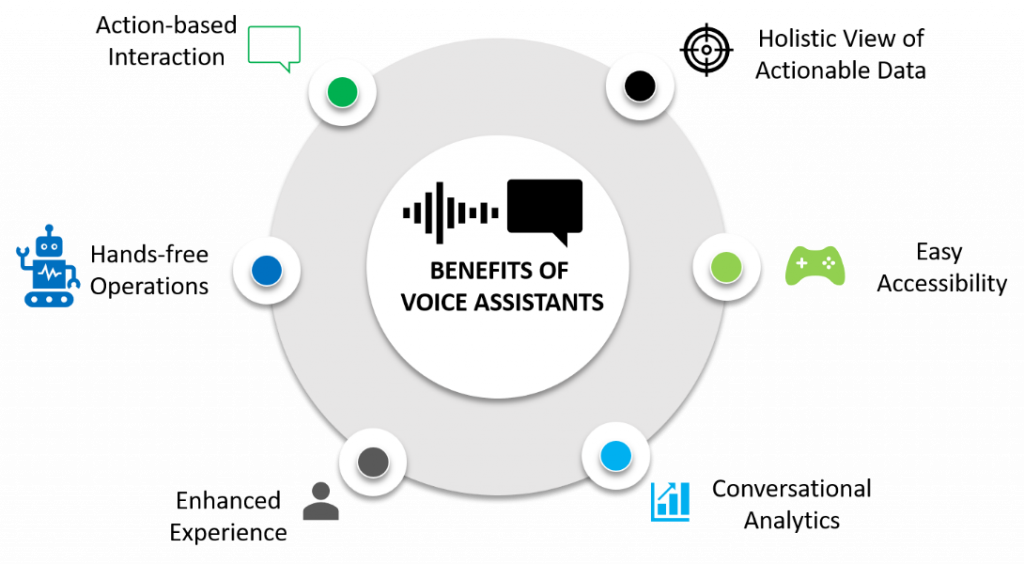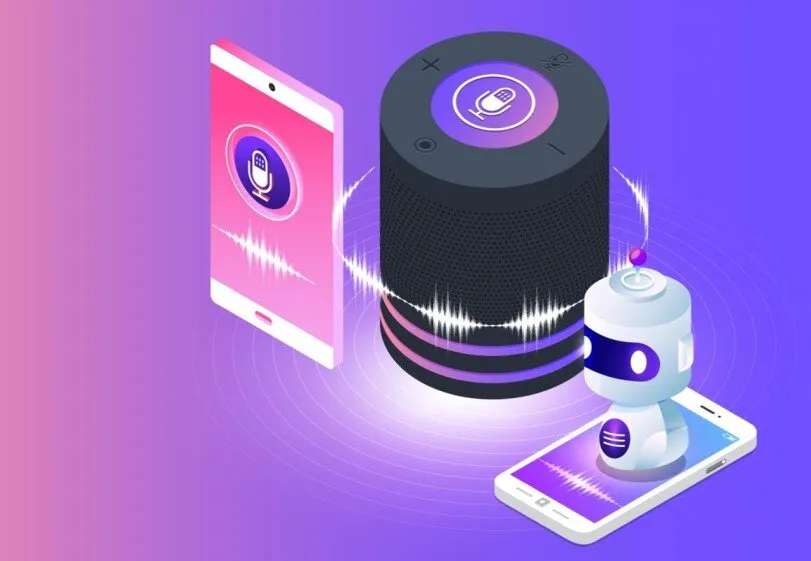



Have you ever experienced a search query on the internet gives faster result than finding critical organizational information? Whether it is quarterly sales or annual revenue, businesses struggle to achieve data at the snap of a finger. There is no doubt that businesses have transformed from rummaging spreadsheets to using enterprise apps for extracting reports from dashboards. However, a question still arises - can enterprise apps be more intelligent and faster?
The answer is YES and exists in the adoption of intelligent voice assistants. But is there any successful voice assistant use case? Is the path to smart assistants a criss-cross one entailing complex challenges? Read ahead to get your answers.
The Age of Voice Assistants
Cognitive technologies such as AI, ML and NLP are driving the adoption of voice-enabled assistants across the consumer and enterprise market. Apple Siri, Google Assistant, Microsoft Cortana and Amazon Alexa are no longer a new trend, but they are on the cusp of becoming familiar.
Organizations use enterprise apps such as CRM, ERP, HRMS, SCM, project management to operate business functions effectively. However, disparate systems, siloed nature of operation aggravate the existing business challenges and affect productivity. With a vast potential to address key business challenges across financial services, healthcare, high tech, let us walk you through some of our successful deployments of cognitive-based voice assistants.
Enhance Financial Information Access Using Conversational Interface
Our client's business users ferreted through complex reports or spreadsheets to extract financial data, analyze annual business performance, identify essential business metrics such as revenue trends, and compare planned versus actual revenue. These processes were manual, tedious, error-prone and added overhead costs to the company.
Xoriant engineering team developed and deployed an enterprise-grade context-aware interactive virtual assistant using the Kore.AI platform. Now, business users easily ask a query to the virtual assistant, that would analyze the context from the query and provide the intended result. This assistant became the centralized access point for a multitude of dashboards across business functions.
Improve Productivity Through Multi-Language Voice Channel Enablement
Are you looking to improve the productivity of your business users and accelerate decision-making? It is time to modernize your enterprise apps such as CRM, ERP, HRMS with voice-enabled technology. Our client provided ML solutions for enterprise operations and wanted a transactional shift to cognitive automation using voice technology. Xoriant’s adept and expert mobile development team deployed an interactive voice search solution supported in 40+ voice languages. The solution can display textual and graphical results supporting 80 types of charts on mobile. This resulted in a 30% increase in productivity with improved decision making.
The 3 Challenges Enterprise Face with Voice Assistants
Though voice-enabled technology is truly taking off, enterprises should be wary of the four challenges.
Interaction with Voice-based Technology: A highly accurate speech recognition technology underlies every voice assistant. Neural networks need training with a vast data set to achieve higher accuracies. These include real audio streams, background noise, low-quality audio samples, echo and reverbs, different accents, variation in tone, etc.

Privacy, Trust and Security of Information: Voice assistants carry a heap of customer data used while executing tasks. With cloud storage being the new norm, strict data protection regulations such as GDPR and the increasing vulnerabilities of cyberthreats, enterprises are mandated to protect every customer's data. Enterprises should make a thorough assessment to ensure data security and privacy as they develop voice-based solutions.
Localizing Voice Assistants: Communication with an enterprise app in a local language helps the accomplishment of tasks faster. Many organizations are going beyond the conventional English language as the default voice assistant. Before you consider voice enablement for your enterprise apps, it is good to get a holistic view of your app’s intent, consumer base, and dialect. Localization can help your voice assistant deliver customized voice experiences for users speaking different languages.
“Now” is the Time to Invest in Voice-Assistants for Your Business
A Gartner report2 predicts 25% of employee interactions with enterprise apps by 2023, which was at 3% in 2019. Besides, IDC reports3 22% of large organizations would deploy smart assistants in their workplace and experience $1 billion cost savings. Digital and smart assistants such as voice-based applications are here to grow, and we are looking at maximizing its potential with endless possibilities for various business use cases. Besides, Juniper research1 predicts a 113% surge in voice assistant devices, from 4.2 billion in 2020 to 8.4 billion in 2024, overtaking the world population.
Leverage Voice-Enabled Technology to Experience Benefits
A tailor-made voice assistant for your specific business scenario can reap huge benefits. Some of them include:

Easy Accessibility: The shift from text-based conversational solutions to voice-based solutions make the conversations more engaging and easy-to-access.
Hands-free Operations: Users can multitask and access enterprise data through voice-based solutions, making them hands-free.
Enhanced Experience: Conversational user interface makes voice-based solutions a preferred mode of communication in enterprises and offers augmented customer experience with reduced cost of operations.
AI-powered action-based Interaction: Powered by artificial intelligence, voice-based enterprise solutions can help understand business workflows, make real-time recommendations, predict outcomes with action-based interactions.
Perform Complex Tasks: An increase in computing power allows voice-based solutions to move from performing simple tasks to complex tasks.
Conversational Analytics: Voice-based solutions enable enterprises to connect conversations to various business systems and accomplish tasks.
Holistic View of Actionable Data: Voice-based solutions can be coupled with different digital solutions to compile enterprise information and deliver actionable insights.
Excited to deploy voice-enabled assistants in your business environment? Talk to our voice assistant experts to explore an opportunity and experience significant benefits now -> Contact Us
Explore Xoriant’s Product Engineering Services capabilities here
Check out our related PDF: UI Modernization
References:



 View Previous Blog
View Previous Blog




